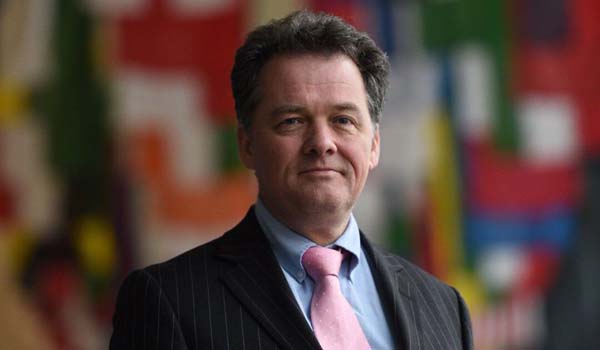We will take the hit at the ballot box say PCCs as they ask for complete precept flexibility
Increasing the cap on precepts will not provide the money needed to meet police demands, police and crime commissioners (PCCs) have warned.
Increasing the cap on precepts will not provide the money needed to meet police demands, police and crime commissioners (PCCs) have warned. In a submission on police funding given to the Home Office this month, chief officers and PCCs asked for an increase of £1.3 billion, enabling the number of officers across England and Wales to grow by 5,000 over the next two years. However, at their joint annual conference this week, many expressed concerns that the Government will simply allow PCCs to increase the council tax precept by lifting the current cap. The limit on precept rises is set at two per cent, or £5 per annum for the ten forces with the lowest, however it is understood that discussions are taking place between the Home Office, Treasury and Department for Communities and Local Government to allow PCCs to raise the cap. PCCs say that simply increasing this limit will not generate the required income. The 5,000 additional officers sought in the National Police Chiefs Council (NPCC)/Association of Police and Crime Commissioners (APCC) submission would enable forces to invest in neighbourhood policing an area highlighted by Her Majestys Inspectorate of Constabulary and Fire and Rescue Services as vital to prevention and intelligence gathering that has suffered as forces struggle with reduced budgets. NPCC lead for finance, Chief Constable Dave Thompson, said the addition of these roles would allow forces to fulfil their mission to protect the public by putting resources into targeting problems rather than reverting to a service that simply responds to calls for service and turns up to investigate events as they are reported. Nottinghamshire PCC Paddy Tipping said most PCCs would find it difficult to fund the additional officers simply by lifting the precept cap in Surrey, lifting the cap to ten per cent would raise several millions of pounds but in other areas the benefit would be limited. A ten per cent increase in precept in Durham or Northumberland would bring in less than £1 million, so it is not the solution, Mr Tipping said. Hertfordshires PCC, and joint APCC lead on finances with Mr Tipping, David Lloyd, said the current capping regime suffers from public misunderstanding, the cap restricts his ability to raise more than £5 per annum on a Band D property, yet the parish council can increase it by £50 the public can not understand why the PCC does not have the same power. He cautioned against a funding solution that was based on a percentage rise in precept. He said the public would be frightened if they were asked for a 33 per cent increase yet would be more willing to pay a pound a week in Hertfordshire which are the same thing. Yet, such an increase would transform policing in the county, he added. My personal view is that there should not be a cap on the precept. The local politician, if they decide on an increase, should take the can in 2020. If you looked at £50 per annum [increase] in Durham, I am sure that would make a big difference there, and I suspect the public could afford £1 a week. The Chancellor of the Exchequer is due to announce departmental spending allocations in his Budget on November 22, but policing represents just 0.74 per cent of UK Government expenditure. Mr Thompson says the Government can make a big difference to policing with a small increase in this portion. The Home Office is understood to be sitting on a new police funding formula a fairer way of allocating the overall central government grant to forces after years of failing to gain agreement on the issue. All PCCs agree the grant formula is outdated and unfair but any solution is likely to lead to a large number of forces facing big cuts. Londons mayor, Sadiq Khan, has urged ministers to cancel the implementation of a new formula as the Metropolitan Police Service (MPS) is expected to be one of the biggest losers. In two versions of a failed attempt to consult on a new formula in 2015, the MPS would have lost £198 million and £700 million. However, oth


